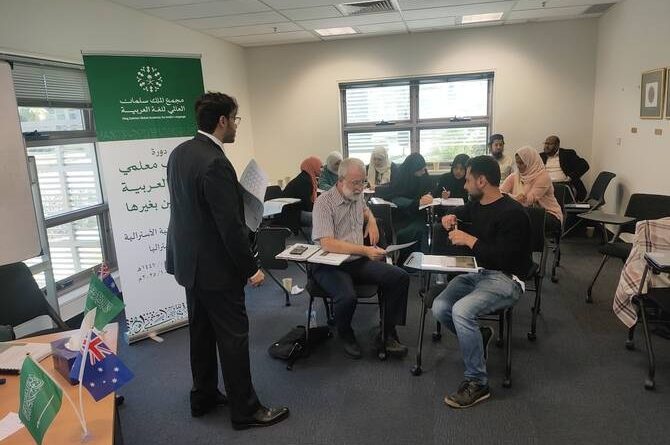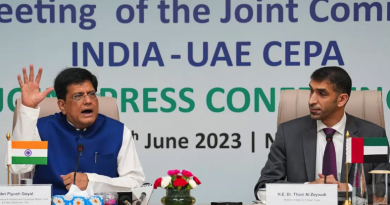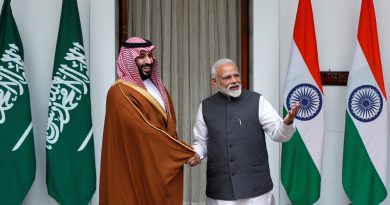King Salman Academy Empowers Arabic Language Teaching in Australia
Riyadh – The King Salman Global Academy for the Arabic Language (KSGAAL) has launched an exciting new initiative in Canberra, Australia, aimed at enhancing the teaching of Arabic as a second language.
In collaboration with the Centre for Arab and Islamic Studies at the Australian National University (ANU), the program seeks to equip teachers with advanced skills, modern methodologies, and global perspectives, fostering the growth of Arabic education worldwide.
The second phase of the Arabic Language Teachers Training for Non-Native Speakers commenced on Monday in Canberra, signaling a strong commitment to international collaboration. The program emphasizes developing teachers’ practical and theoretical skills, ensuring that Arabic learners globally benefit from highly qualified educators.
By combining modern educational tools with traditional approaches, the academy aims to promote a deeper understanding of language, culture, and communication.
Ali Almodwah, Director of the Programs and Centers Department at KSGAAL, provided an overview of the academy and its initiatives, highlighting the importance of expanding Arabic language education beyond the Kingdom.
He emphasized that this collaboration with ANU represents a key step in supporting teachers while strengthening the global presence of Arabic as a language of communication, culture, and innovation.
The academic program includes a wide range of specialized activities designed to enhance teaching and learning outcomes. Participants engage in a learner-focused curriculum, develop communication skills, and explore methods for integrating technology into classroom instruction.
A seminar titled “The State of Arabic Learning and Teaching in Australia” provides a platform to discuss best practices, while two discussion panels address Arabic for specific purposes and innovative pedagogical techniques.
As part of the program, teachers also receive preparatory courses for the Hamza Academic Test, a significant tool for measuring proficiency and ensuring high-quality teaching standards.
By equipping educators with these resources, KSGAAL seeks to elevate the global teaching of Arabic, moving beyond rote memorization to a focus on communicative and cultural mastery.
Abdullah Al-Washmi, Secretary-General of KSGAAL, explained that the program strengthens the academy’s broader international mission. “This initiative reflects our commitment to expanding global collaboration and connecting with leading academic institutions,” he said. “By combining rigorous teaching methods with innovative resources, we aim to prepare educators for a dynamic and evolving language-learning environment.”
Saad Al-Qahtani, Director of the academy’s Educational Programs Sector, highlighted the importance of selecting world-class partner institutions. “ANU stands out for its expertise in Arabic and linguistic studies, particularly in teaching Arabic to non-native speakers,” he said.
“The collaboration merges modern theoretical frameworks with traditional teaching approaches, providing educators with scientific tools to enhance Arabic learning globally.”
Al-Qahtani also praised Australia’s educational system for its academic rigor, openness to diverse cultures, and practical approach to communication. He emphasized that the program encourages teachers to develop critical thinking, evaluate educational practices, and utilize professional platforms to support their growth.
The academy aims to empower educators to deliver dynamic and culturally informed Arabic instruction, setting a benchmark for excellence in language education.
Parents, students, and educators alike have welcomed the initiative, recognizing its potential to strengthen Arabic learning worldwide. By fostering advanced teaching methods, providing access to professional resources, and promoting cross-cultural collaboration, the King Salman Global Academy for the Arabic Language continues to lead global efforts in language education, ensuring that Arabic remains a vibrant and influential language for generations to come.
This program reinforces KSGAAL’s mission to nurture skilled, confident, and culturally aware Arabic teachers while enhancing the Kingdom’s international cultural presence.
Through initiatives like this, Saudi Arabia demonstrates its dedication to global education, cultural exchange, and the development of innovative teaching practices aligned with Vision 2030 goals.



